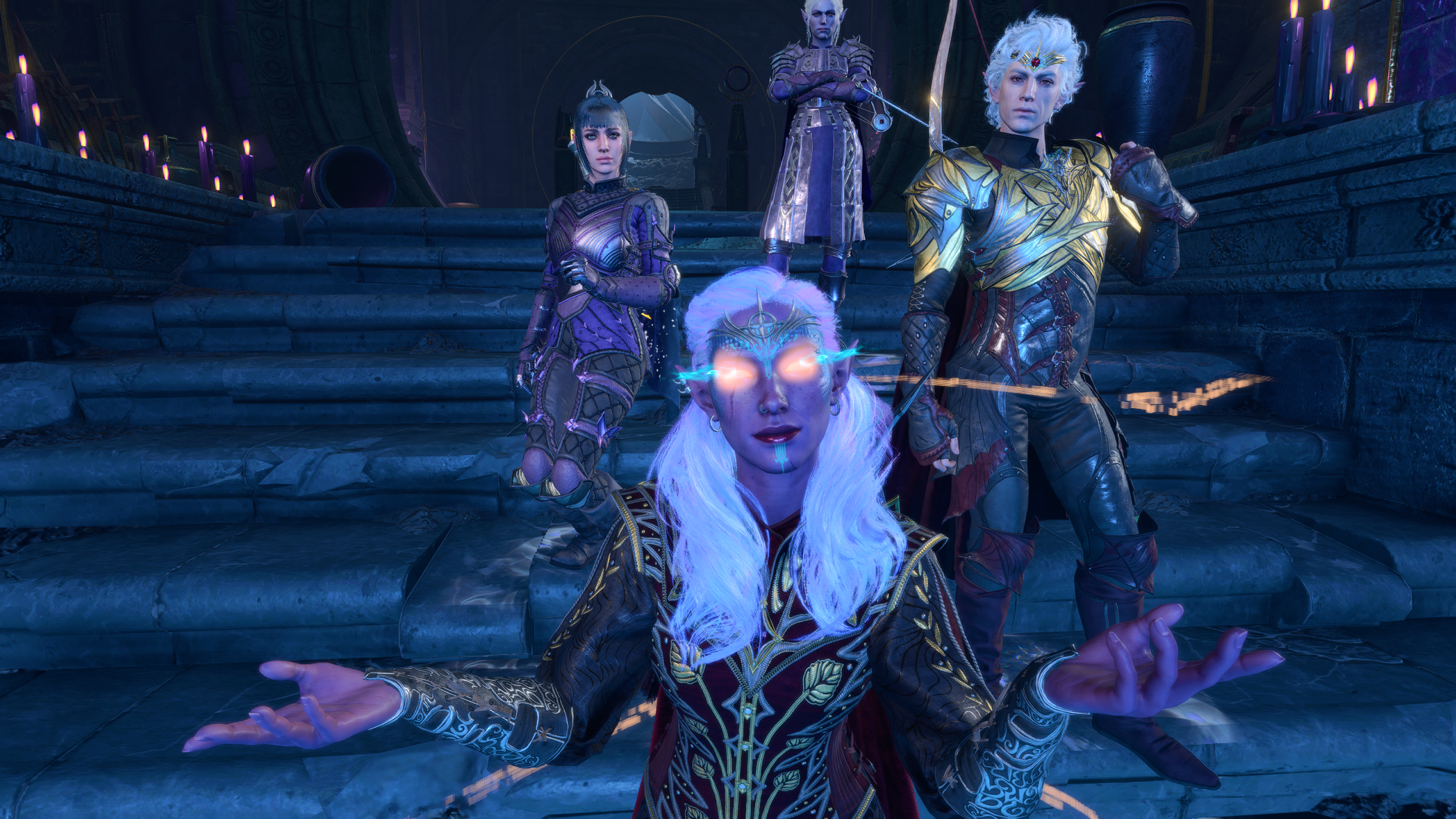Michael Blake had a reputation among his peer in the theatre industry for being thoughtful and methodical.Supplied
Over the course of his decades-long acting career, Michael Blake built a reputation within the Canadian theatre industry for being quiet. Backstage, he was known to be thoughtful, perhaps even overly so – he took his time to flesh out the tiniest details of a given character’s psyche. At the Stratford Festival and beyond, he was slow, methodical. Every line had to be perfect.
But fellow actor Jordin Hall, a younger Stratford Festival mainstay who regarded Mr. Blake as a mentor, saw a different side of the artist. On days off from acting, they bonded watching televised Ultimate Fighting Championship bouts, and at work, they shared Hi-Chew candies and giggled together onstage, even whispering inside jokes during performances. In 2023, a murmured reference to a silly line from All’s Well That Ends Well during a death scene in Richard III nearly sent a performance into chaos, according to Mr. Hall. “We had a great laugh, and I nearly croaked,” he said. “But it was worth it.”
“Blake had this veneer to him,” added Mr. Hall, who had a habit of referring to Mr. Blake by his last name. “But he was a softie at heart. He loved hard.”
Mr. Blake was a trail-blazing Black actor whose career spanned this country, a workhorse of Canadian theatre who advocated for improved representation for people of colour across screen and stage. He died suddenly in July at the age of 53. His family has not disclosed the cause of his death.
Michael Andrew Blake was born in Toronto on Dec. 26, 1971. According to close friend Lena Macdonald, he was a precocious child, an early reader with boundless energy and a red-hot appreciation for music and art. An alumnus of St. Michael’s Choir School and the Claude Watson Secondary Arts Program at Earl Haig Secondary School, he made his professional acting debut on the teen soap opera Degrassi Junior High in 1988.
A decade later, he enrolled at the National Theatre School in Montreal, where he met fellow actor Rylan Wilkie, with whom he would later share the stage in Stratford.
“We met on the very first day of school,” said Mr. Wilkie, who recalled playing opposite Mr. Blake in student productions of A Midsummer Night’s Dream and George F. Walker’s Featuring Loretta. The actors were close, and often indulged in smoked meat sandwiches and Cherry Cokes after class.
“He had all this professional experience,” Mr. Wilkie said, “and this really strong work ethic. He wanted things to be excellent, and if things weren’t progressing that way, it really bothered him.”
Mr. Blake was a trailblazing Black actor who advocated for improved representation for people of colour across screen and stage.David Hou/Supplied
After theatre school, the actors’ paths temporarily diverged: Mr. Wilkie took off for Western Canada, while Mr. Blake went home to Toronto, where he played Simba in the original Canadian production of The Lion King and eventually joined the inaugural cohort of the Soulpepper Academy. He was also a member of the first English acting company of the National Arts Centre in Ottawa.
While Mr. Blake’s résumé was studded with successes across Ontario and beyond – he memorably played the titular role in Dean Paul Gibson’s 2009 production of Othello for Bard on the Beach in Vancouver, for instance – it was at the Stratford Festival where Mr. Blake cemented his theatrical legacy. Mr. Blake appeared in 25 productions between 2011 and 2023, including another Othello in 2019, about which the New York Times wrote that Mr. Blake “wore [Othello’s] confidence like a cockscomb.”
Mr. Blake was set to return to Stratford in 2026, according to festival artistic director Antoni Cimolino.
“There’s nobody even close now, in terms of casting those parts,” Mr. Cimolino said, adding that the festival will dedicate a production to Mr. Blake’s memory next season. “We say often in theatre that anybody can be replaced, and I’m not sure that’s quite true. I feel like people can be singular and irreplaceable, and I’m sort of left with that now. I assumed Michael would be a source of strength for doing Shakespeare at the festival for decades to come. He was among the very finest actors of his generation.”
In Stratford, Mr. Blake flexed his abilities in a variety of roles, never limiting himself to one genre. Over the years, he played everything from Macduff in Macbeth to Master Page in The Merry Wives of Windsor, Don John in Much Ado About Nothing and Caliban in The Tempest. Plus, of course, Othello.
“Othello and The Merry Wives of Windsor were in the same season,” Mr. Cimolino said. “Those parts couldn’t be more different, and yet he made both so real. He had the ability to live at the centre of the character – you couldn’t imagine a world that was anything other than what he put on the stage. Watching the contrast between those portrayals was a pleasure.”
At the Stratford Festival, Mr. Blake reconnected not only with theatre school buddy Mr. Wilkie, but also actor Graham Abbey, with whom Mr. Blake had worked on a touring show for children in the 1990s. The two initially bonded over the play’s “rather dodgy” monologues, according to Mr. Abbey, as well as their mutual appreciation of American football. (Mr. Blake rooted for the New Orleans Saints.)
Mr. Blake flexed his abilities in a variety of roles over many years at the Stratford Festival.David Hou/Supplied
“We liked musicals and sports,” Mr. Abbey said. “A strange mix, but we’d always talk about both things. Later on, when we were both in Toronto, we’d do these all-day marathons watching football; I remember making this awful sausage pasta for it.
“We spent so many hours together at various phases in our lives, which is something I can’t say I’ve done with a lot of other people,” he continued. “We were texting nearly right up until the time of his passing.” According to Mr. Abbey, Mr. Blake had recently recommended a set of graphic novels to him to prepare for a role: Neil Gaiman’s Sandman series.
What endures about Mr. Blake’s artistry, according to those who directed and shared the stage with him, is the grit with which he approached theatrical text, whether playing an impish lion or a Shakespearean scoundrel. He was introspective and pensive in the rehearsal hall so that he could be completely uninhibited onstage.
“I loved watching him assess and think,” Mr. Gibson said, reflecting on the 2009 Othello. “We went across the country to find the actor who would be our Othello. And while Michael was relatively young at the time, there was something about his particular take on the character that stood out from other candidates. There was a maturity there, a weariness and awareness of the world that made him seem like he had lived more years than his actual age.
“When you cast an actor, you’re always looking for that extra layer of depth, that secret sauce that makes the performance that much of a deeper experience,” Mr. Gibson continued. “I loved how deliberate he was, and I loved catching him off guard.”
Mr. Blake had a rich personal life outside of his work. He had two daughters from different mothers – Olivia Croft, 30, and Sydney Robinson Blake, 8, whom he often took to the theatre. According to Ms. Macdonald, he prioritized eating healthily and keeping active – he seldom indulged in guilty pleasures.
Even with so much to keep busy, art made up a huge part of his existence, Ms. Macdonald said. He was a fan of Kendrick Lamar, and he had a tattoo honouring visual artist Jean-Michel Basquiat.
“So much of his life involved his art,” she said, highlighting his contributions, as a Black Shakespearean actor, to the Canadian theatre ecology. “Certainly a great deal of our time together was spent discussing the craft. Art meant everything to him.”
That love of art meant Mr. Blake held himself to high standards, according to Mr. Hall, often impossibly so. “It’s nice to be acknowledged as a Black actor,” he said, “but I think he wanted to be acknowledged as a great actor, too. We would talk about it all the time: He’d tell us that as Black actors that we had to bring it. We had to be excellent; we had to be better, and do the work better. He never settled.”
When a piece of work resonated with Mr. Blake, however, the veneer dropped. The telltale stoicism and rigour gave way to a warmth that Mr. Hall says he feels lucky to have experienced.
“He came to see Anne of Green Gables this year with his daughter,” he said. “He was beaming. He was so proud of me, and he texted me later. He said ‘I’m really happy to see you shining brightly at Stratford.’ Coming from someone that talented, from a guy who looks like me, someone who held such a high standard for himself and therefore others … that meant more to me than he could ever possibly know.”
Mr. Blake leaves his two daughters and his mother, Marjorie Blake.
You can find more obituaries from The Globe and Mail here.
To submit a memory about someone we have recently profiled on the Obituaries page, e-mail us at [email protected].











